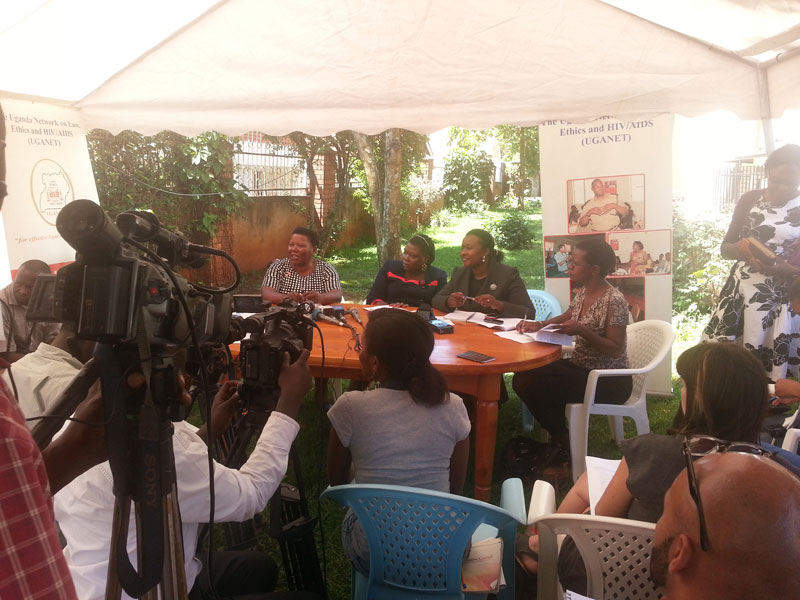
This past Tuesday Uganda’s Parliament passed something called the HIV Prevention and Management Bill. The law will not prevent the transmission of HIV. Everyone knows this. It will worsen the lives of all living with HIV. It will threaten the lives of LGBTIQ persons, and in Uganda, gay and lesbian identity is in the eye of the beholder. It’s not about being gay; it’s about being called gay. This law will have particular and catastrophic effect on women.
The law institutes mandatory HIV testing for pregnant women and their partners. Ostensibly it’s meant to `protect’ women and younger girls whose sexual partners conceal that they have Aids or are HIV-positive. It doesn’t protect women and girls. It endangers them.
The law also allows doctors to reveal the HIV status of those who have been tested. In Uganda, where HIV prevalence is higher among women and much higher among younger women, activists argue, the combination of mandatory testing and sharing of information is an invitation to domestic violence and even murder, at the hands of a partner who claims the woman brought the virus into the home.
That’s what protecting women looks like.
According to the International Community of Women Living with HIV, Eastern Africa: “The passage of the HIV Prevention and AIDS Control Bill represents a dangerous backslide in Uganda’s efforts to respond to HIV. While the bill may have been intended to facilitate and improve the HIV response in Uganda, the bill contains many poorly conceived and fear-induced provisions that have no place in a public health and human-rights-based response to HIV. As passed, this bill will actually weaken Uganda’s HIV prevention efforts and will have a detrimental and disproportionate impact on the rights of women and girls and in particular women living with HIV.”
Long-term HIV activist Milly Katana put it more succinctly: “All I can say now is doomsday has landed on all the people of Uganda. You will see fewer and fewer people testing.”
Margaret Happy, the Sexual Reproductive Health and Rights Officer of the International Community of Women Living with HIV Eastern Africa, agrees: “Uganda is already facing a serious backslide from its early advances in responding to HIV, Uganda is currently one of three African countries experiencing increases in their HIV prevalence rates previously from 6.5% to 7.3 %. The passages of this Bill will only serve to increase this backslide and the President must save Uganda from this backlash.” Lillian Mworeko, Regional Coordinator of the ICW Eastern Africa, adds that the legislators “chose to act out of fear and unfounded hysteria.”
“For Uganda to address its HIV epidemic effectively, it needs to partner with people living with HIV, not blame them, criminalize them, and exclude them from policy making. The president should not sign this bill and instead ensure a rights-based approach, recognizing that people living with HIV will prevent transmission if they are empowered and supported,” said Dorah Kiconco, executive director of Uganda Network on Law, Ethics & HIV/AIDS.
Dr Lydia Mungherera, of TASO, The AIDS Support Organization (TASO), explains: “This clause is taking us back centuries when all the progress we have made in fighting this pandemic is going to be ruled out. They are criminalizing people who are having consensual sex.”
Finally, Dianah Nanjeho, from UGANET, Uganda Network on Law, Ethics and HIV/AIDS warns that the bill will force HIV positive people, and especially women, underground: “The only path by which someone gets onto treatment is by taking a HIV test. People who don’t know their status are going to shun the health system and say ‘look I can’t go to take a HIV test because the results are going to be displayed in court some day. We will have someone who is HIV positive in the docks but without any justice system to fend for them.”
In every way, this Bill attacks women, and women know this. But Museveni will almost undoubtedly sign the Bill into law. Why? ““Because he knows the voters are going to like this bill it will be popular with him.” Who cares about science? Who cares about the knowledge of those, largely women, who have toiled in the fields for decades and dedicated their lives? Most importantly, who cares about the women? Really, all one must do is claim that protecting women is one’s goal, and it’s all good.
(Photo Credit: ICWEA)

